Is Democracy Dead in California?
28 2016
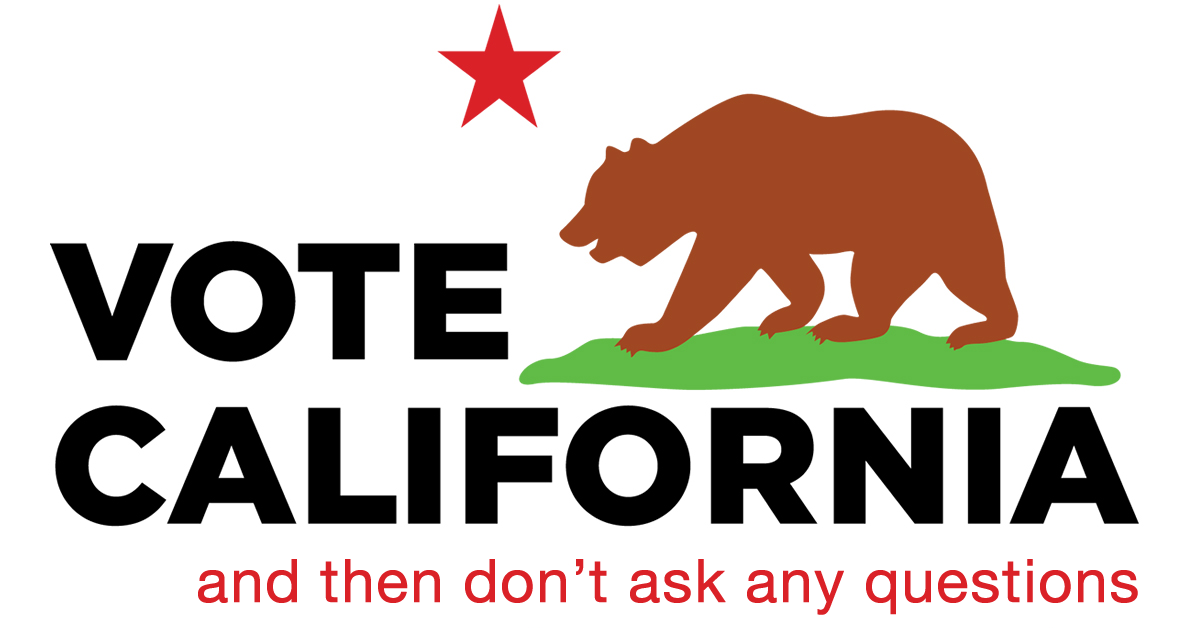
Mounting evidence indicates corruption and a stolen election.
Let us not mince words California. This has been a disgusting month for democracy here in our state. A massively important election was probably stolen via voter suppression and election fraud, and Hillary Clinton was prematurely named the winner. Are we going to stand for it?
Senator Bernie Sanders and his supporters will all fight on, to the convention in July, and beyond. Sanders has made this clear during his speeches.
But the truth is, he shouldn’t have to fight on, at least not like this.
On June 7, Sanders not only won North Dakota and Montana, he probably also won California, as well as South Dakota and New Mexico.
It appears that the media, together with someone high up in the Democratic National Committee, conspired to, first, call the entire nomination on June 6, a day no one voted, and then to take advantage of cancelled exit polls — an essential check against fraud — to steal the election.
Worse, California seems to be another state in a string of suspicious elections.
For those of us who remain patriots, who still deeply treasure democracy, who remember the millions of people all over the world who have laid down their lives for this precious thing — the right to vote — we are at a crucial moment. There has been scattered election fraud throughout our nation’s history, but here in 2016, empowered by computerized voting machines and centralized counting, enabled by a wholly-owned corporate media, and abetted by corruption in the two big political parties, this country has crossed a Rubicon and witnessed the likely theft of an entire nation-wide election. The scale is unprecedented.
If you’re interested and have an open mind, let’s look together at what happened, how we got here, and what needs to be done.
Crimes Against Democracy
Before the June 7 primary in California, I researched election fraud and voter suppression in the Democratic Party primaries. I reported on it in several articles, including this one in The Huffington Post. Going into the night of the primary, I knew that there had been both suppression and fraud in other states, and I was concerned about what would transpire here in the Golden State.
Before we go further, if you’re only getting your news from NPR, CNN, MSNBC, FOX, and the big daily newspapers, please consider broadening your media diet, and please acknowledge that today, at least on this topic, you are uninformed. These sources have been in corporate control for many years at this point, they have all revealed strong biases for Clinton and Trump here in 2016, and not one has ever in the last 15 years seriously investigated election fraud.
On the other hand, mathematicians, authors, documentary filmmakers, and investigative journalists have shown over the past decade just how easy it has become to rig the various types of computerized counting machines that are now in use across this country. According to one such documentary and several investigative reporters, Republican strategist Karl Rove became a master of manipulating state elections during the previous decade, and he was able to swing Ohio for George W. Bush in the 2004 presidential election.
Exit polls back then in 2004 indicated fraud, but those polls were ignored and eventually buried by the media. Here in 2016, exit polls have also shown widely divergent results favoring Clinton in at least a dozen states. (If you’re not familiar with exit polls and their crucial significance, please read this.)
The use of hackable computerized election machines has also correlated strongly with Clinton winning more votes than expected. A study earlier this month from researchers at Standford University found that Sanders has fared far better across the country in the states that use verified paper-based voting systems rather than unverified computerized tallying systems.
Stealing Gold in the Golden State
California is the biggest prize on the Democratic Primary calendar, offering 475 pledged delegates for the taking. The Golden State is also a crucial determinant of momentum heading into the Democratic Party Convention in July, where the nominee is chosen by so-called superdelegates if no candidate has earned enough pledged delegates to win outright, as is the case this year.
Leading up to the election on June 7, the question on everyone’s mind was whether Bernie Sanders could take California, take the momentum, and perhaps even take the pledged delegate lead, all in one swoop.
Had we experienced a free and fair election, he might very well have done two or even all three of those things.
Instead we in the Golden State witnessed the full trifecta of voter suppression and fraud: Soft Voter Suppression, Hard Voter Suppression, and Outright Election Fraud. Let’s explore each of these.
1. Soft Voter Suppression
This type of suppression generally includes media coverage, candidate debates, media advertising, and endorsements.
In California, the corporate media used many such tactics to drive down enthusiasm for the election in general, and to mute the appeal of Bernie Sanders in particular:
- No Debate. First of all, the media allowed Hillary Clinton to renege on her pledge for a debate in California. A California debate in May had been agreed upon, but Hillary backed out, and despite Bernie’s requests, this hallmark of democracy — a conversation on the issues in front of a state’s voters — was dispensed with.
- #BernieBlackout. Measured in numerous ways, Bernie received approximately 18% of the airtime that Clinton received and about 5% of the time Trump received. This amounts to censorship, and it drastically suppressed interest in Sanders and his message. The media blacked out not only his ideas and endorsements, but also his tremendous rallies up and down the state. Had Hillary Clinton drawn 30,000 in Sacramento or 40,000 in Oakland, there would have been wall-to-wall coverage. Instead, only the occasional evanescent flash of Bernie appeared on local TV, and then was gone. Among numerous studies, Harvard researchers last week found that the #BernieBlackout was both real and debilitating to the campaign.
- The Big One. The largest act of soft voter suppression was breathtaking in its audacity. On Monday, June 6, a day when no one voted, the day before California’s primary, when Bernie had just pulled ahead by 2% in a statewide poll, on the evening news, the strangest thing happened: Every corporate news channel in California simultaneously announced that Hillary Clinton had won the nomination. Nothing had changed the fact that Clinton couldn’t get the required pledged delegates before the convention in July (and she still can’t), but nevertheless that evening the media trumpeted in broad and ringing terms that she had won, it was over, history was made, it was a done deal. (As if that wasn’t bad enough, they had already announced a week before the primary that they would prematurely call the nomination for Clinton.)
Why would they do all of that? Why would they hide Bernie Sanders’s campaign and then imply to the people of California that there was no reason to vote — first quietly a week before the election, and then loudly the day before the election?
Clinton has tended to do best in the earliest voting done in states that allow early voting. Polls have shown that as people get to know Bernie Sanders more, they tend to like him more. Bernie’s giant rallies began in California in late May, and by early June in the statewide polls he had closed from 10 points behind to a dead heat, and then he pulled ahead in some polls just before election day. The best ballots for Clinton were likely the ballots cast long before the election. Perhaps someone had even begun tabulating those votes.
In any event, making a grand coordinated announcement that a race is over the night before the election will always depress turnout and thereby give more weight to early voting.
2. Hard Voter Suppression
This type of suppression includes removing voters from the rolls, manipulating voter registration, reducing polling places, misleading voters about election rules, and rejecting provisional ballots.
We’ve seen these tactics used by elections officials throughout the country this year, and most were also in abundance in California on June 7:
- NPP Voters Disenfranchised. Independent voters, called No Party Preference voters in California, were given ballots without the presidential election on them at all, despite the fact NPP voters were allowed to vote in the Democratic Party Primary via a “crossover” ballot. By some estimates this alone disenfranchised over one million voters.
- NPP Voters Disenfranchised. Without being redundant, NPP voters at some polls were given crossover ballots, but then poll workers placed these ballots erroneously in provisional ballot envelopes.
- Registration Switch. Thousands of voters discovered they had been switched to vote-by-mail. When these voters arrived at the polling place, they had to go home to find their ballot, if it ever arrived, or vote with a provisional ballot.
- No Ballots. Many voters who were registered as vote-by-mail never received a ballot in the mail at all. These voters then came into their polling place to vote, only to be told by poll workers they had to vote via a provisional ballot since they were registered as vote-by-mail.
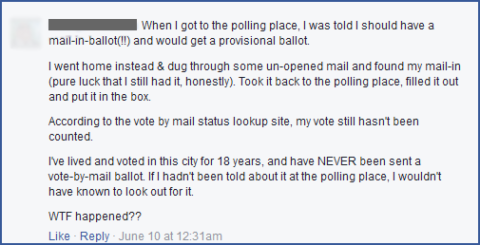
Despite this person’s extra effort to retrieve his surprise mail-in ballot from home, his vote still wasn’t counted on election day, since he was wrongly told to “put it in the box” to be counted later, along with provisional ballots, rather than into the machine that counts ballots on election day.
In all of these cases — and each happened many thousands of times — voters were either barred from voting or were given provisional ballots. And as we have learned from other states, provisional ballots aren’t counted until weeks or months after an election, even though the winner is announced the evening of the election. Thus voters who are given a provisional ballot are effectively barred from voting, at least for the sake of public perception. In California, provisional ballots are often not counted at all if they are “challenged” or if an official decides that counting them won’t “affect the outcome.”
On the morning of June 7, curious to see what would happen, I personally took the time to be a poll observer in nine polling places in Alameda County. I witnessed with my own eyes what was being widely reported on social media: multiple instances of the four types of voter suppression listed above.
I also spoke with some poll workers in the places I observed. What I found was that most workers were enthusiastic and committed to providing voters with the proper ballots. Their training, however, had been “a whirlwind,” according to one worker.
“We were given just way too much information, too many rules. I don’t know if anyone could absorb it all.”
She said there was no direction on what rules were most important to learn. Most poll workers apparently received one three-hour training session in which this huge amount of information was lectured to them very quickly. Several poll workers told me that they came away from the training thinking: When in doubt give out a provisional ballot. This idea is not only utterly wrong, it likely prevented millions of voters from having their votes counted on election day, and it disproportionately affected independent voters, who mostly support Sanders according to polls.
A powerful new documentary, Uncounted, just released last week, reveals extensive hard voter suppression in California on June 7.
3. Outright Election Fraud
To explore outright fraud, which is perhaps the darkest component of these crimes against democracy, we need to take a brief step back and investigate like a detective to ascertain means, motive, and opportunity. Was there a reason — and was it possible — to perpetrate such a crime?
First, the exit polls. Exit polls during March showed significant disparities with the official vote counts in a dozen states. Then in April, in the New York primary, exit polls showed a 4-point Clinton win but computerized counting machines somehow recorded a 16-point Clinton win. Then came the Connecticut primary, where exit polls showed Sanders winning by 5 points, but computerized counting machines recorded an 8-point Clinton win.
At that point, after Connecticut, attentive citizens and lawyers sued the corporate media organizations to get all of the exit polls, including unreleased data. It was time to document these disparities and either validate the election results or prepare a legal case for fraud. We had learned that the exit poll data had often been “adjusted” by the polling company, sometimes for legitimate reasons but other times for unknown reasons, so the suit sought to obtain the unadjusted “raw” numbers. It was a lawsuit for public benefit, and since it was our democracy at stake it seemed inevitable the media organizations would release this crucial information.
They didn’t.
The corporate media not only kept the data secret, but they cancelled all subsequent exit polls. Yes, you read that right. In April, they cancelled all exit polls for the remainder of the primary.
Thus there were no exit polls for New Jersey, California, or any of the other states that voted in May or June.
This shows that if fraud is occurring, it isn’t just a single political party or campaign behind election fraud; someone in the corporate media must be complicit too. Fighting the lawsuit and cancelling future exit polls could be regarded as concealing evidence. Worse, by cancelling the exit polls four weeks before the California primary, the media removed a deterrent to stealing future primaries. The media essentially gave a green light in early May to rigging elections throughout the rest of May and June. This provided opportunity.
In other states where Bernie had caught up in the pre-election polls — in Wisconsin and in Indiana, for instance — he ultimately won by comfortable 5–10 point margins. But then the morning of June 7 dawned in California, and Bernie somehow lost by 14 points.
There are no exit polls, so we have only one other way to ascertain whether the election was fraudulent. Only hand-counting ballots would do the trick. Well, the ballots that have been counted by hand thus far already reveal likely fraud.
The private companies who make the voting machines refuse to allow anyone to view their computer code to determine whether the computerized count was fair and legitimate or deceptive and fraudulent.
Private, secretly-coded election machines also constitute opportunity.
California’s head elections official is an important figure to consider. This person, who is in charge of certifying California elections machines, managing voter registration rolls, and budgeting and training poll workers, had tremendous power over this election. His name is Alex Padilla, and he is an avowed Clinton supporter. Alex Padilla not only brazenly appeared in public wearing Clinton gear before the election, he also spoke at a Clinton rally.
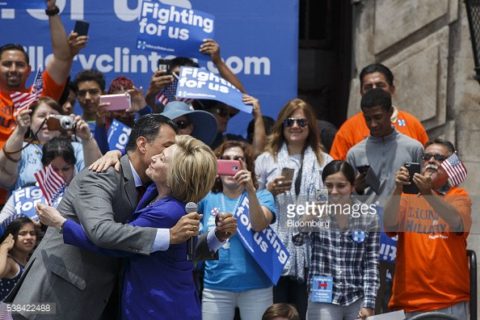
Alex Padilla running the state’s elections provided means.
Now to motive. Well, it’s obvious Hillary Clinton wanted to win this primary, and it’s also clear she was losing support as winter turned into spring. She campaigned heavily in the state, even as her rallies attracted relatively few people and even as the polls showed Bernie Sanders steadily pulling closer, closer, into a tie — and then ahead by a hair as election day arrived.
Abundant additional data indicated the Clinton campaign had reason to worry about losing the election. Approval ratings, voter registration information, social media activity, rally attendance, and numbers of contributing donors all pointed to Sanders as the candidate who was more popular, more energizing, and more likely to win.
Would Stealing an Election This Important Require a Huge Conspiracy?
So what do we know? We know that California suffered from serious soft voter suppression and pervasive hard voter suppression, both in favor of Clinton. As for outright fraud, we have: suspiciously cancelled exit polls; means, motive, and opportunity to not count the votes fairly; and the absence of a way to verify whether the votes were counted fairly. Together this constitutes a case that only a truly biased investigator could dismiss.
But wouldn’t stealing an election require a huge conspiracy involving both the media and the Clinton campaign?
Someone in the corporate media would probably have to be aware of this. And someone in a position of power in the Democratic National Committee would have to be aware as well.
But perhaps the scariest thing is that the conspiracy wouldn’t have to be huge. The computerization of our democracy — and the secrecy of these voting machines — have advanced to a point where a handful of hackers, or even possibly a single expert, could load a fractional voting system into the machines remotely to massage the numbers. Hard voter suppression could be carried out through simple under-funding and under-organization of poll workers and one blanket voter registration update organized by Alex Padilla. There is evidence both of these last two things happened.
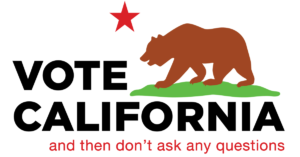
As for the media, an operation like this might not require complicity of many people. There’s an unspoken taboo in this country about considering election fraud, and this taboo doesn’t exist just in the media world, but in polite conversations at dinner parties and fundraisers too. Questioning the integrity of our elections in 2016 is like calling the world round in the Dark Ages — no one asks the question for fear of social ostracism. One can lament occasionally about the under-staffing of polling places or ‘irregularities’ that discourage new voters, but to actually question the voting machines, even though they’re now largely computerized and hackable, is blasphemy. Reporters sense this too. Don’t question our elections. Media professionals who hope to get promoted stay away from “conspiracy theories,” even when deep down they might sense a conspiracy is happening.
To be specific, Clinton herself might not be aware of what is going on. As was demonstrated in one documentary, only a few members of a political party or campaign need to know.
Citizens and Lawyers Rise Up
Whether many people were involved or just a few, whoever did know about this might not get away with it this time. Thousands of people — perhaps millions — already suspect this election was stolen. A large grassroots movement of people throughout California who have their share of suspicions have been observing and monitoring the counting of millions of provisional and mail-in ballots all month.
Even more importantly, the most powerful lawsuit filed on election fraud thus far was filed last week, naming not only the Democratic Party but media organizations too. It isn’t a simple criminal case; the case uses RICO racketeering statutes to charge conspiracy to commit serial election fraud.
Lee Camp, host of the show Redacted Tonight —one of the few media sources that is actually investigating election fraud in this primary — explains this crucial lawsuit in the clip below. Camp is a comedian in the mold of Jon Stewart, mixing sarcasm and humor into some of the most trenchant news coverage available today. Camp deserves much credit for his work, and I recommend his weekly show.
None of this is about Bernie Sanders. With this much fraud, it shouldn’t matter very much to any of us who is “winning.” Were Clinton winning these states cleanly and legitimately, people paying attention would stand back and congratulate her and her campaign. But this hasn’t been clean and legitimate, this hasn’t been democracy, this isn’t the vote so many people have fought and died to protect. When one stands back to look at the entirety of this primary, it has been rigged at every turn, from the scheduling of the debates, to the counting of the superdelegates, to the DNC secretly funneling party money to the Clinton campaign.
Bernie Sanders often says the business model of Wall Street is fraud. He also says that the economy is rigged and that our campaign finance system is corrupt. All of this is true, but the darker truth is that corruption has likely infiltrated not just Wall Street finance, federal macroeconomic policy-making, and the campaign finance system, but our public elections too. The whole system stinks. We are dealing with corruption run amok.
There were people in the 1700s who didn’t want to break with England. In the 1800s there were people who didn’t want to end slavery. And in the 1900s there were people who didn’t want women to vote. Those people were either genuinely reactionary or were duped into opposing progress and justice by the few then in power. Nevertheless, at those crucial times, the majority of patriotic Americans supported the expansion of democracy.
Today there are those who don’t believe we need to overhaul our elections. There will be some unconvinced by evidence, lawsuits, and unambiguous mathematical research. But I believe most who oppose electoral justice simply haven’t been informed about this by the powerful arbiters of opinion in the big corporate media. If you’re reading this and shaking your head, perhaps it’s too much and you don’t want to consider it, particularly if you work in politics or media yourself? It’s a big step to consider that we might not live in a democracy at all, or in one that is badly damaged.
As big as it is, fixing our elections won’t require blood, bullets, or years of war. Breaking from England and ending slavery were far bigger steps. Today’s challenge shouldn’t even require the violence meted out to early suffragettes or civil rights activists.
But it will require waking up to another inconvenient truth.
It will require exit polls.
It will require hand-counted ballots.
It will require universal voter registration.
And that would probably do it, at least for a start. From there we could build on a bedrock of authentic democracy to make additional choices: Should the head elections officer in each state really be a partisan politician? Should we institute a nonpartisan National Department of Elections in Washington with sufficient funding and staff resources? If paper ballots are too Luddite, should we talk to the computer scientists who have come up with voter-verified encrypted voting systems that can be computerized while guaranteeing independence and unhackable accuracy?
As a young nation, we fought a revolution in 1776 for democracy and the right to vote. Since then, millions of people have been imprisoned, tortured, and killed to win the right to vote for blacks, for women, for the poor, and for those over 18 but not yet 21.
We have to fight for democracy again today, for the simple right to vote and to have that vote counted. Whoever your favorite candidate is, if you’re a patriotic American your real fight in 2016 should be for democracy itself.


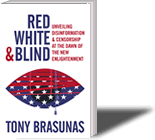
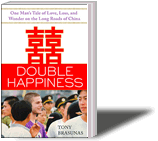
Connect & Share